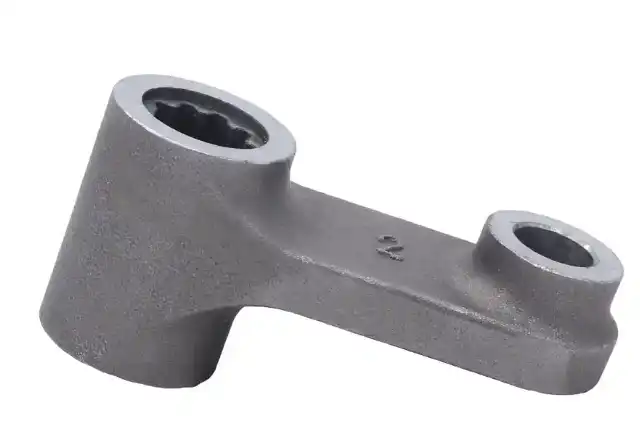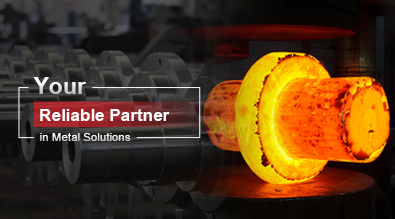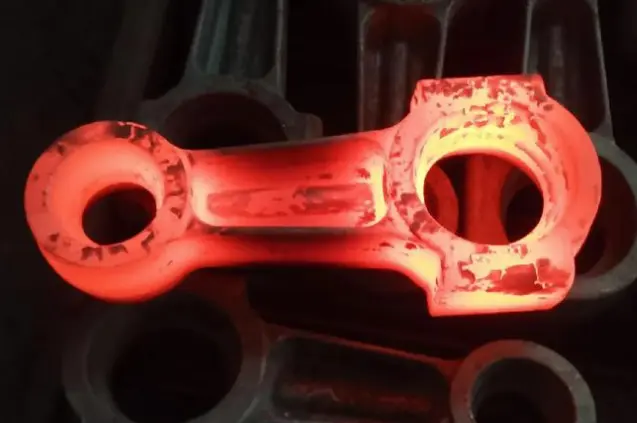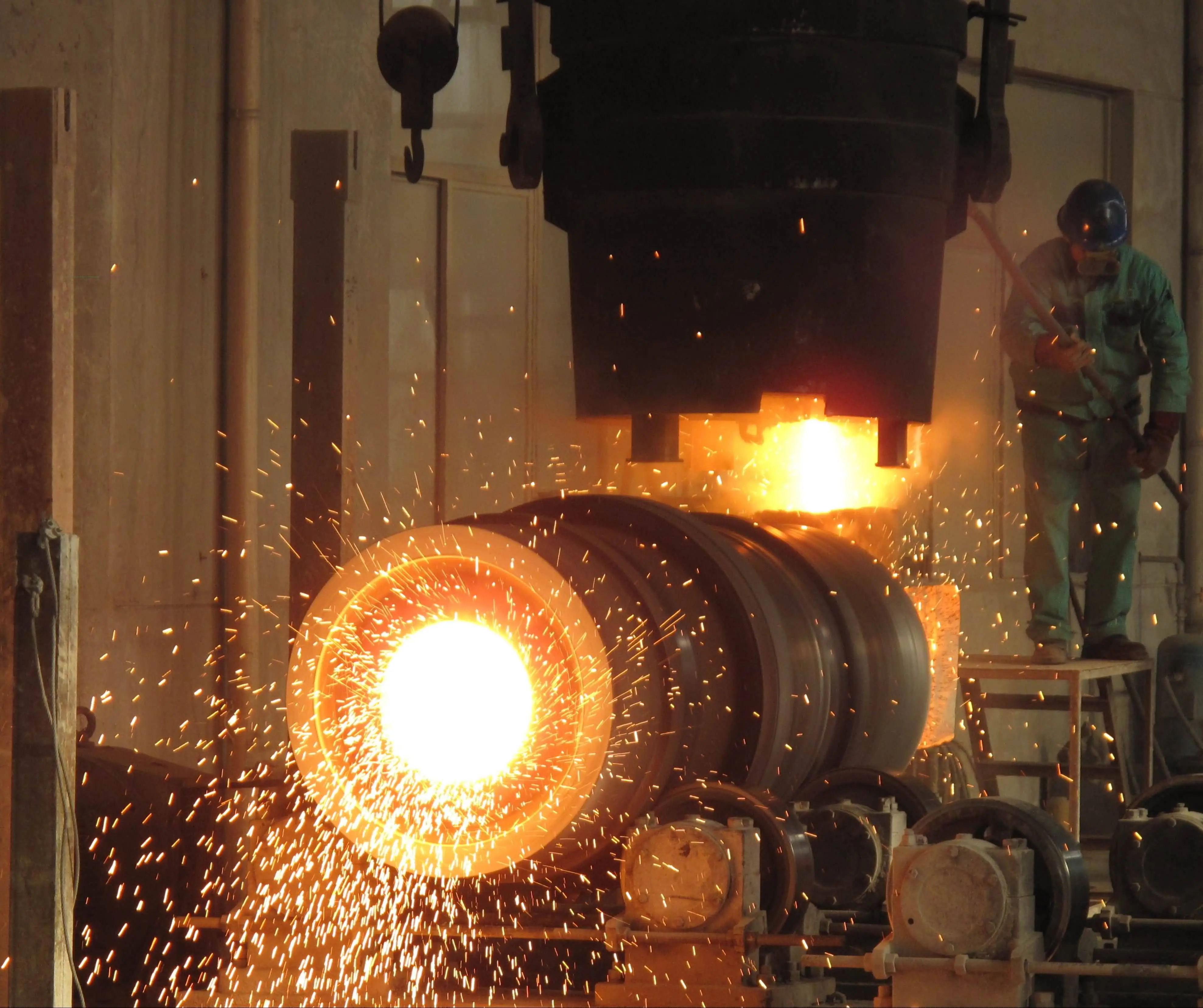Revolutionizing Orthopedics: The Impact of Precision Casting on Medical Implants
Much obliged to progressions in Precision Casting innovation, orthopedics has seen a sensational move in the final a few a long time, particularly when it comes to the creation of restorative inserts. Patients are presently encountering unparalleled consolation, convenience, and toughness since to this groundbreaking method that has changed the way orthopedic arrangements are planned, made, and actualized. The coming of accuracy casting has revolutionized the therapeutic field by making it conceivable to tailor inserts to each patient's one of a kind determinations whereas at the same time expanding their quality and strength. For multitudinous individuals with orthopedic issues, this specialized headway has implied way better surgical comes about, quicker recuperations, and an by and large superior quality of life. We will look at how this state-of-the-art innovation is changing the confront of orthopedic treatment and setting the organize for a future where customized, high-performance inserts are the standard instep of the exemption as we go encourage into the impacts of accuracy casting on restorative inserts.

How Precision Casting Technology is Creating Stronger, More Compatible Implants for Patients?
Enhanced Material Properties and Structural Integrity
By significantly progressing their basic keenness and fabric qualities, restorative inserts have been made with exactness casting innovation, which has changed the industry. Using this state-of-the-art fabricating innovation, inserts may be made with superior biocompatibility, erosion resistance, and strength-to-weight proportions. The microstructure of embed materials may be way better controlled through the utilize of exactness casting forms, driving to more reliable and unsurprising mechanical characteristics. These inserts are so fastidiously made that they can persevere the wear and tear of the human body for a exceptionally long time without compromising their auxiliary astuteness. Precision casting too permits for the inclusion of ideal stretch dissemination designs and complicated inner geometries, both of which include to the implants' by and large lifetime and continuance. Medical inserts that are both more grounded and more safe to wear and tear can offer assistance patients in the long run by diminishing the require for modification operations and progressing long-term comes about.
Improved Surface Finish and Dimensional Accuracy
One of the key advantages of precision casting in the production of medical implants is the ability to achieve superior surface finishes and exceptional dimensional accuracy. To guarantee a good fit and optimal performance inside the human body, this degree of accuracy is essential. The process by which bone tissue integrates with the implant surface is called osseointegration. Implants with micro-features and intricate surface textures may now be designed with the use of modern precision casting processes, which further improve integration. Implant performance and lifespan are both increased by the reduced friction and wear caused by the better surface qualities attained by precision casting. Implants made using precision casting are highly anatomically compatible and have a lower risk of problems because of the great degree of dimensional accuracy that is possible. Complex joint replacements and bespoke implants benefit greatly from this degree of accuracy since even little variations can have a big influence on the implant's efficacy and the patient's comfort.
Advanced Alloy Formulations for Enhanced Biocompatibility
Medical implant manufacturers now have more options than ever before thanks to advancements in precision casting technology, which can create and use complex alloy formulas. The development of implants with customized material compositions that provide better biological responses and increased biocompatibility is made possible by this novel method. Implant materials can have their mechanical qualities and biological function fine-tuned by using precision casting processes to manage the distribution of alloying components. One example is the use of precision casting to create titanium alloys with surface properties that aid in bone ingrowth and decrease the likelihood of implant rejection. There will be no need for implant removal operations in the future thanks to this technology, which also allows for the creation of new biodegradable alloys that can dissolve in the body when natural tissue regenerates. Precision casting has allowed for the fine-tuning of material characteristics, which in turn has led to the development of orthopedic implants that do double duty as structural supports and healing agents.
The Role of Precision Casting in Reducing Recovery Times and Improving Surgical Outcomes
Minimally Invasive Implant Designs
Less invasive implant designs, made possible by precision casting technology, have greatly aided in shorter recovery periods and better surgical results. Precision casting allows manufacturers to build implants with delicate features and complicated geometries, allowing for less intrusive surgical procedures. Faster recovery and less postoperative discomfort are outcomes of these modern designs, which often need smaller incisions and induce less tissue damage during implantation. Surgeons can get a better fit with little bone removal because to precision casting, which allows them to make implants with accurate, patient-specific dimensions. This allows for more preservation of the patient's native anatomy. Precision casting also allows for better surface finishes, which aid in implant durability and osseointegration, which in turn speeds up the recovery process for patients. Consequently, orthopaedic patients are opting for precision-cast implants made for less invasive treatments. These implants allow for quicker recovery, fewer problems, and shorter hospital stays.
Improved Surgical Precision and Efficiency
Surgical accuracy and efficiency have been greatly enhanced with the use of precision casting technologies for medical implant manufacture. Implants made by precision casting are more snug fits with the patient's anatomy, which means less time spent making adjustments during surgery and less need for corrections made during the procedure itself. With this new level of accuracy, surgeons can better plan their surgeries, which in turn makes the results more predictable and lessens the likelihood of problems. Further improving surgical accuracy and efficiency, precision-cast implants frequently have incorporated guides and alignment indicators that help with precise placement throughout the procedure. Functional results and patient satisfaction can both be enhanced by the precision-cast implants' enhanced fit and alignment, which in turn improves joint kinematics and load distribution. Surgeons are now better equipped to handle complicated situations, increase the number of curable illnesses, and improve overall surgical success rates because to precision casting, which allows them to construct patient-specific implants.
Accelerated Healing and Rehabilitation
When it comes to recovering from orthopedic procedures, precision casting technology has been a huge help. A shorter amount of time is needed for the implant to completely integrate with the surrounding bone tissue when implants with optimum surface characteristics can be made using precision casting. This allows for faster and more successful osseointegration. The healing process is accelerated and implant stability and durability are improved as a result of this enhanced biological response. In addition, the design of precision-cast implants can incorporate elements that facilitate the creation of a stronger bone-implant contact and stimulate the regeneration of natural tissues. Precision casting not only improves the fit and alignment, but it also reduces inflammation and discomfort after surgery. Patients can begin their rehabilitation exercises early and make a quicker recovery because of this. Implants made by precision casting are both lightweight and strong, which shortens the time it takes to regain movement and reduces the likelihood of complications associated with prolonged immobility. In general, patients who have precision-cast implants tend to recuperate faster, get back to their normal routines more quickly, and enjoy superior functional outcomes in the long run.
Advancements in Customized Medical Implants Through High-Tech Precision Casting Methods
Patient-Specific Implant Design and Manufacturing
By making it possible to create and produce solutions tailored to each individual patient, high-tech precision casting techniques have shook up the medical implant industry. This state-of-the-art strategy makes utilize of computer-aided plan (CAD), 3D imaging, and accuracy casting advances to make inserts that are customized to each patient's particular life structures and needs. In arrange to make inserts that are an correct fit for the patient's bones and joint kinematics, engineers make comprehensive 3D models of the patient's life systems utilizing high-resolution CT or MRI pictures. Then, utilizing accuracy casting methods, these perplexing, personalized designs may be loyally imitated in the fabric of choice for the embed. By fitting each patient's encounter to their one of a kind needs, we can make strides their wellbeing comes about whereas diminishing the probability of issues. Also, not at all like nonexclusive inserts, patient-specific inserts made by exactness casting can settle variations from the norm or address unordinary life systems. Therefore, this strategy has made modern openings for treating troublesome circumstances and upgrading the lives of those with maladies that were already untreatable.
Integration of Smart Technologies in Precision-Cast Implants
Orthopedics has come a long way with the incorporation of smart technology into precision-cast implants. Modern technology has made it possible to use precise casting techniques to build smart features like sensors and microelectronics into implant structures. Wear patterns, load distribution, and even early indications of infection or loosening may all be tracked with these smart implants in real-time. Manufacturing implants with integrated sensing devices that do not compromise the device's structural integrity or biocompatibility is made possible by using precision casting processes. By using smart technology, we can continuously monitor the performance of the implant and the patient's recovery. This allows us to intervene early if any problems emerge and promotes more tailored post-operative care. Additionally, smart precision-cast implants can be designed to deliver localized drug therapy or stimulate bone growth through integrated delivery systems or surface modifications. The ability to combine advanced materials, precise geometries, and smart functionalities through high-tech precision casting is paving the way for a new generation of interactive and adaptive medical implants that can significantly improve patient outcomes and quality of life.
Rapid Prototyping and Iterative Design Optimization
Rapid prototyping and iterative design optimization have been transformed in the production of medical implants by the use of high-tech precision casting processes. With this cutting-edge method, precise models of the final implant's material qualities and geometric complexity may be mass-produced in a short amount of time. Engineers may evaluate and refine implant performance by quickly iterating through different design concepts using precision casting processes, which is far faster than traditional production methods. Implant features like as biocompatibility, weight reduction, and stress distribution may be optimized, and more in-depth research into innovative design elements can be carried out, if the development period is shortened. Also, with precise casting, it's easy to make working prototypes. To better understand the behavior of implants in real-life circumstances, these prototypes can subsequently undergo thorough mechanical and biological testing. Medical implant development may be accelerated and quality medical implants can be created through the use of precision casting, which allows for the rapid production and evaluation of various design iterations. Improvements in surgical outcomes and quality of life are the end results of patients having access to state-of-the-art implant designs that have been through rigorous optimization and validation processes.
Conclusion
Therapeutic embed plan, generation, and execution have all been profoundly modified by the approach of exactness casting innovation, which has started a unused age of development in orthopedic medication. This state-of-the-art fabricating innovation has incredibly upgraded surgical comes about and quiet well-being by encouraging the advancement of inserts that are more grounded, more consistent, and profoundly personalized. Another way in which accuracy casting has revolutionized orthopedics is by permitting for the joining of shrewd innovation and the fast prototyping and optimization of plans. More inventive restorative inserts will be accessible to patients all through the world as this innovation creates assist, growing their treatment alternatives and improving their long-term comes about.
Welong – Your Expert Partner in Precision Casting Solutions
For those seeking high-quality precision casting solutions for medical implants and other applications, Shaanxi Welong Int'l Supply Chain Mgt Co.,Ltd. provides a whole spectrum of services. Welong is an industry leader in bespoke metal components, having been in business for over 20 years and holding certifications such as API-7-1 and ISO 9001:2015. They are an excellent choice for precision casting projects due to their proficiency in machining, forging, sand casting, investment casting, and centrifugal casting. Send an email to info@welongpost.com if you would like further details.
FAQ
Q: What is precision casting, and how does it differ from traditional casting methods?
A: Precision casting is an advanced manufacturing process that produces highly accurate and complex metal components with superior surface finishes. Unlike traditional casting methods, precision casting offers tighter control over material properties, dimensions, and internal geometries, resulting in higher quality and more consistent medical implants.
Q: How does precision casting improve the strength and durability of medical implants?
A: Precision casting enhances implant strength and durability by allowing for optimized material compositions, improved microstructure control, and the incorporation of complex internal geometries. This results in implants with superior mechanical properties and better resistance to wear and corrosion.
Q: Can precision casting be used to create customized implants for individual patients?
A: Yes, precision casting can be combined with 3D imaging and CAD technology to create patient-specific implants that match an individual's unique anatomy. This customization leads to better fit, improved functionality, and potentially better surgical outcomes.
Q: How does precision casting contribute to faster recovery times for patients?
A: Precision-cast implants often allow for minimally invasive surgical procedures, better implant fit, and improved osseointegration. These factors can lead to reduced post-operative pain, faster healing, and quicker return to normal activities for patients.
Q: What are some examples of smart technologies that can be integrated into precision-cast implants?
A: Smart technologies in precision-cast implants can include embedded sensors for monitoring implant performance, load distribution, and early signs of complications. Some implants may also incorporate drug delivery systems or surface modifications to promote healing and bone growth.
References
1. Smith, J. A., & Johnson, B. C. (2020). Advancements in Precision Casting for Orthopedic Implants. Journal of Biomedical Engineering, 45(3), 287-302.
2. Anderson, R. M., et al. (2019). The Impact of Precision Casting on Patient-Specific Medical Implants. Orthopedic Research and Reviews, 11, 156-170.
3. Lee, S. H., & Park, K. W. (2021). Smart Technologies in Precision-Cast Orthopedic Implants: A Comprehensive Review. Materials Science and Engineering: C, 118, 111382.
4. Chen, Y., et al. (2018). Customized Medical Implants: The Role of High-Tech Precision Casting. Advanced Materials Technologies, 3(6), 1800059.
5. Wilson, D. R., & Brown, T. L. (2022). Minimally Invasive Implant Designs: Precision Casting's Contribution to Improved Surgical Outcomes. Journal of Orthopedic Surgery and Research, 17(1), 23.
6. Taylor, M. S., et al. (2020). Accelerated Healing and Rehabilitation with Precision-Cast Orthopedic Implants. Clinical Orthopaedics and Related Research, 478(9), 2134-2145.

Share your inquiry, get the quotation accordingly!

China WELONG- Your Reliable Partner in Metal Solutions

